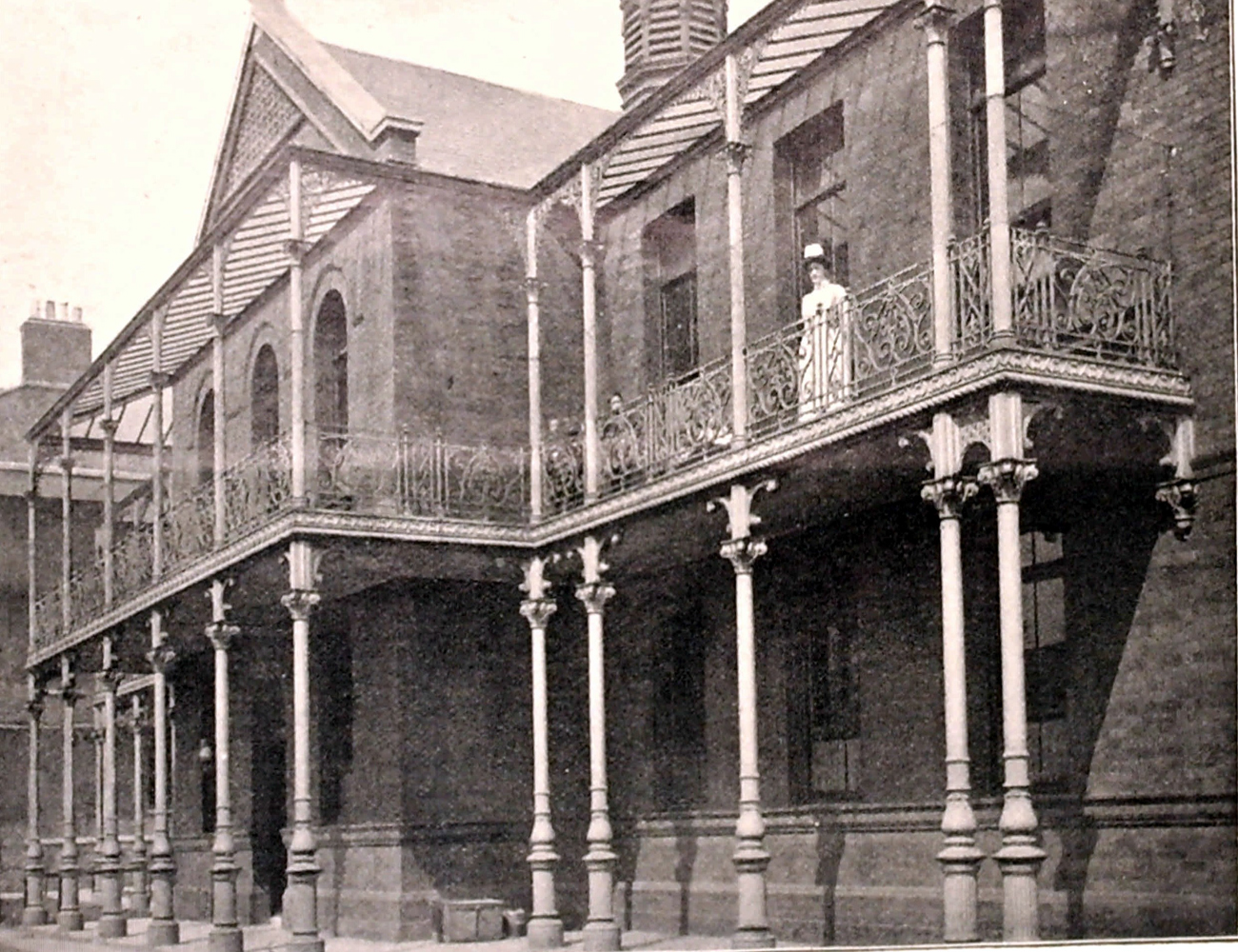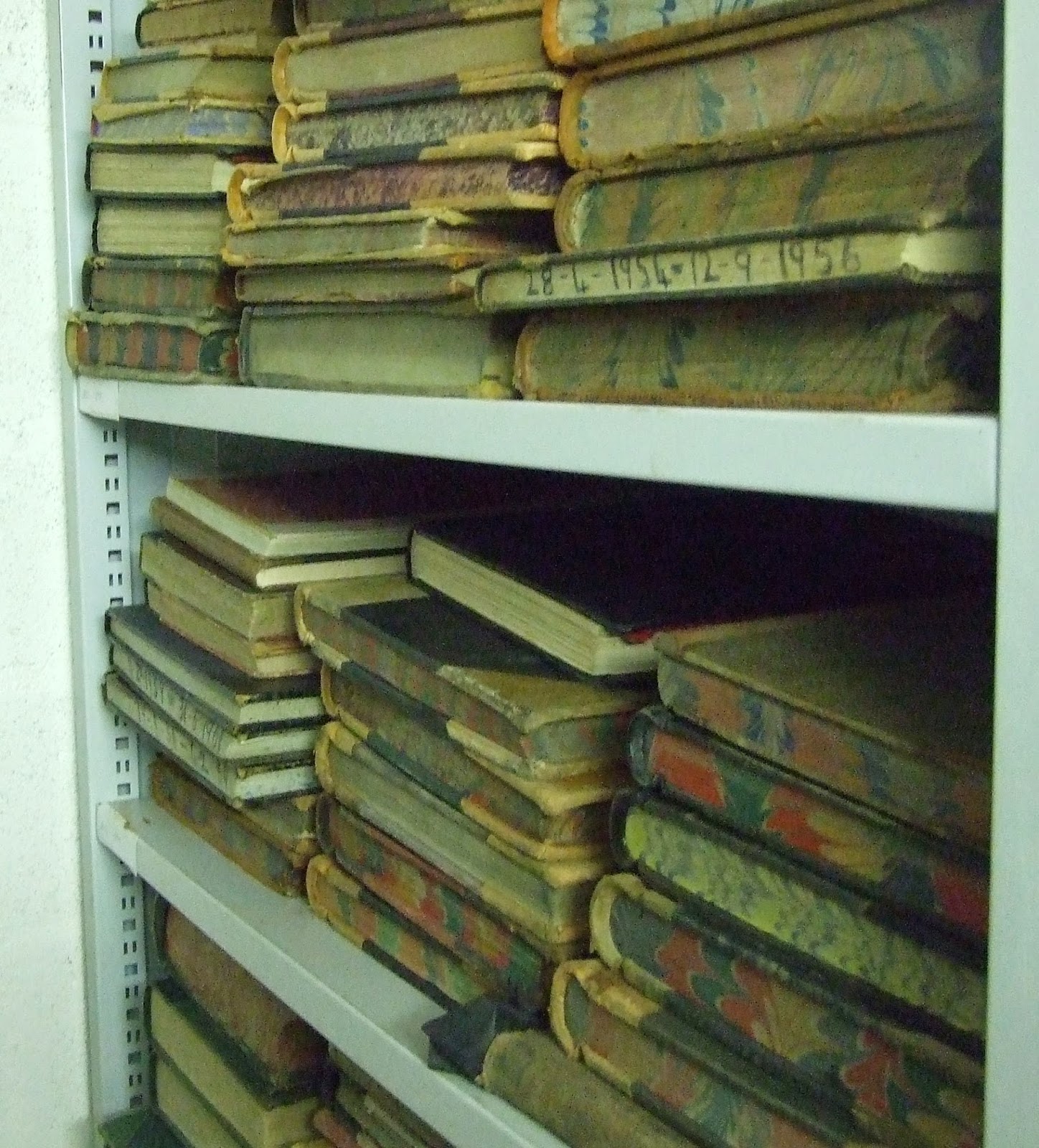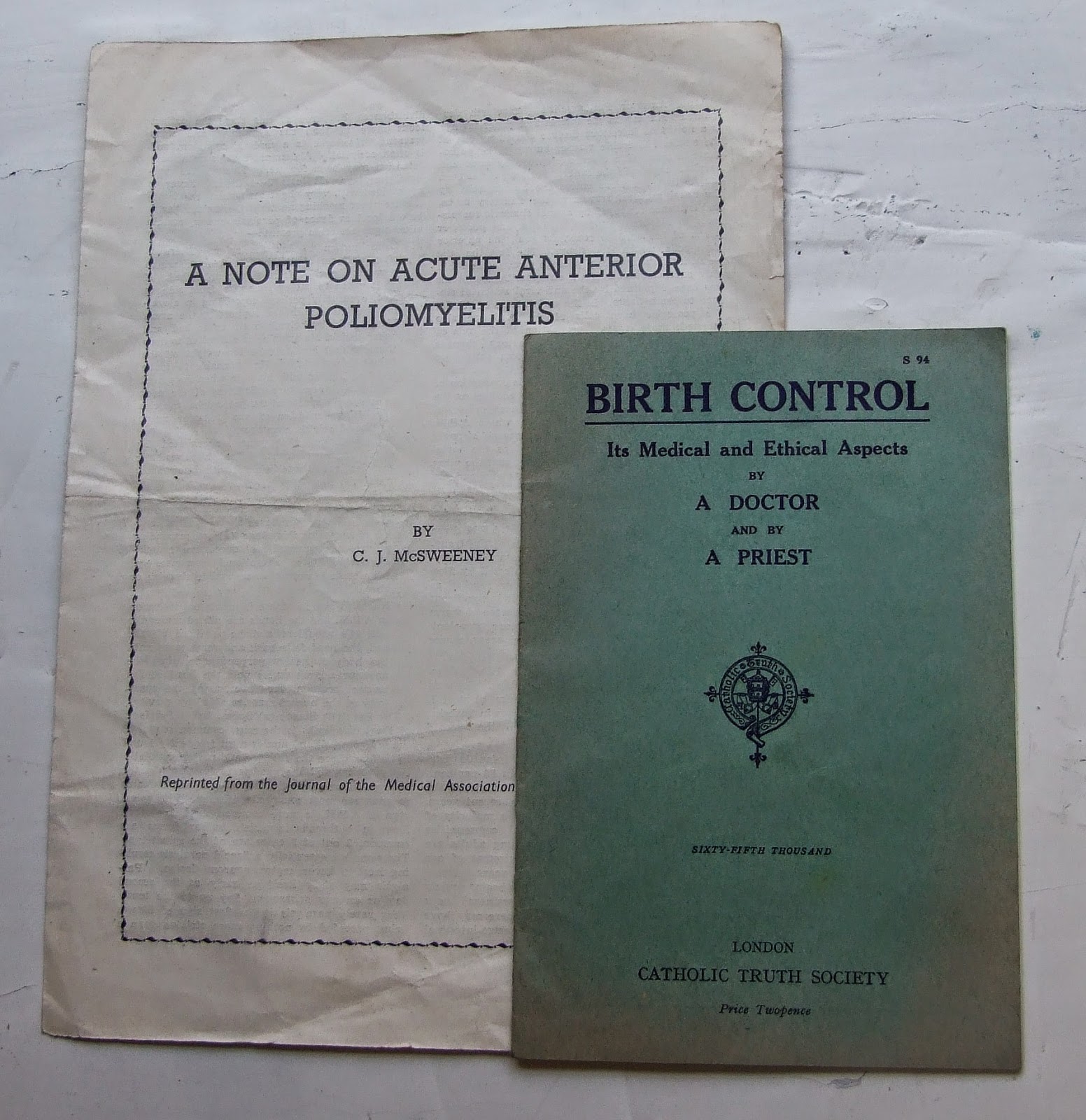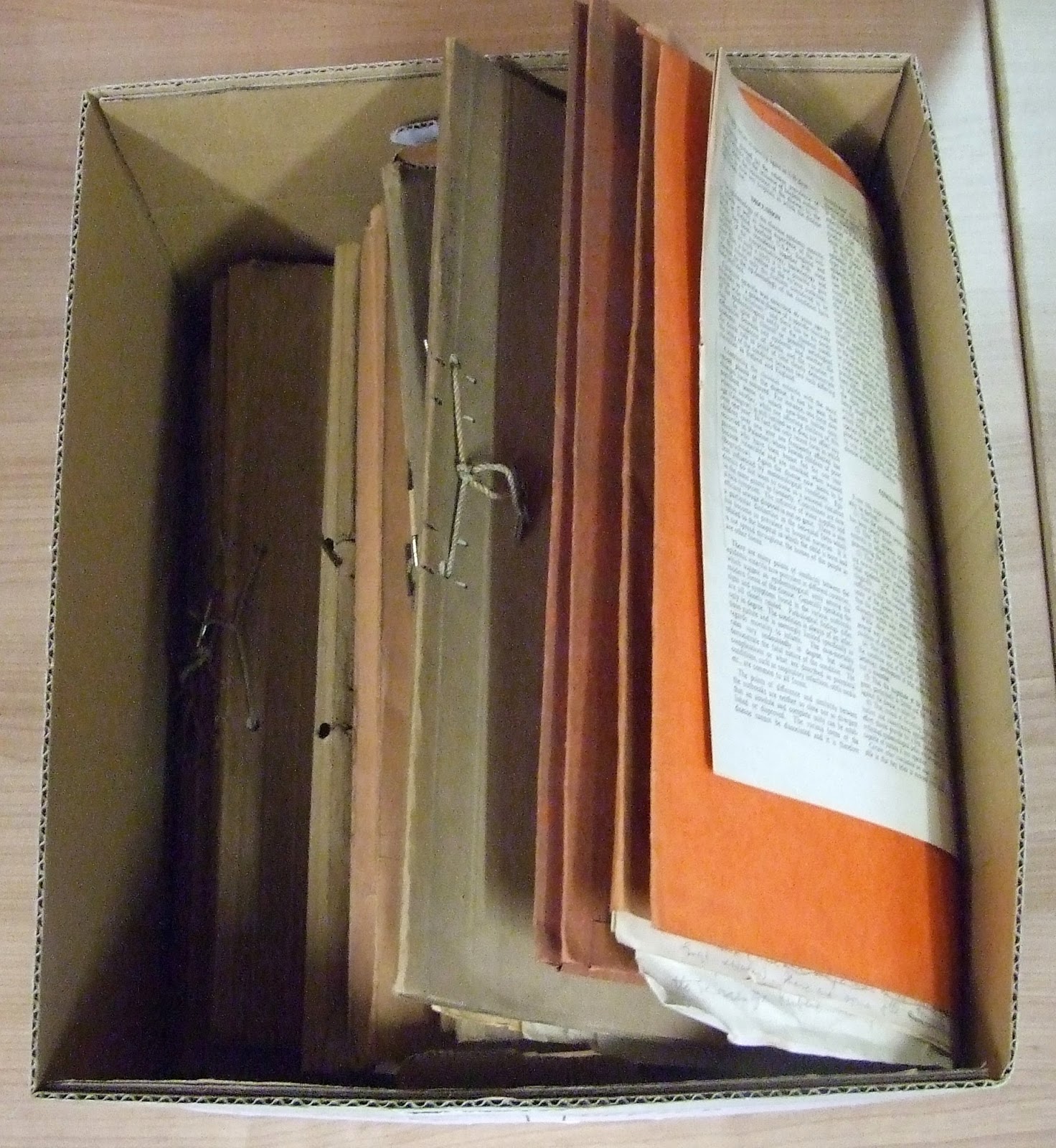Archive Fever and Cork Street Fever Hospital: Box Lists and Arrangements
 |
Image of the House of Recovery, Cork Street Fever Hospital,
taken from the 1909 Annual Report (CSFH/1/2/1/6) |
In my
experience to date of working as an archivist, I have found that at the outset
of a cataloguing project it is always a good idea to do a general survey of
the collection. Having a broad idea of what is in the collection will assist my
decisions regarding the arrangement of the catalogue, the preservation needs of
individual items, and (hopefully!) eliminate the potential that random material
will turn up near the end of the cataloguing process.
 |
| Unsorted volumes in the Archives Store |
Over the
past few days, then, I have been compiling a rough ‘box list’ of the various
items that make up the Cork Street Fever Hospital Archive. I suppose that I’ve
been doing what my non-archivist friends and family imagine me doing all of the time i.e. rummaging through disorganised boxes and bundles of files in an
archives store, notepad and pencil to one side, emerging with blackened hands
only periodically. It is work such as that always makes me think of the term 'Archive Fever', coined by the French philosopher Jacques Derrida (a key text in any archivist's education!)
 |
Some material from a folder created by Christopher Joseph
McSweeney, Medical Superintendent in Cork Street Fever Hospital
(CSFH/3/1/3/21 and CSFH/3/1/4/1) |
I have not
undertaken any of this work due to an aversion to natural light, however! The
box list has enabled me to come up with a draft scheme of arrangement for the
catalogue I will produce. Sometimes archives services receive collections of
records in which the context of their creation is clear, and in which the best
course of action is minimal intervention in terms of moving records around. The
records from Cork Street Fever Hospital which have been received into the RCPI
Heritage Centre are quite disorganised, however, so the initial survey and box
list is invaluable in providing me with ideas of how to impose a logical
structure upon them which will assist researchers. In keeping with other
finding aids to archival collections in the RCPI Heritage Centre, the Cork
Street records will be divided into a number of series differentiated from each
other by type of record. So although a cursory description such as ‘3 files,
mainly leaflets concerning new medicines or medical training seminars etc’ may
not be much use to a researcher now, it provides me with a good idea of where
to place these records physically and intellectually in the catalogue.
The initial
survey is also invaluable in assessing the state of preservation of individual
items. Archives differ from the majority of printed library items in their unique nature, and therefore it is essential for archivists to take steps to ensure their
preservation for future use. Some of the bound volumes of minutes relating to
meetings of the Board of Cork Street Fever Hospital are in poor repair, and
will need to be placed into archival boxes to lessen the impact of
wear-and-tear. Other records have been damaged by mould, and will need to be assessed
by a conservator.
 |
| Unprocessed records in a banker's box labelled as 'Dr O'Dea's Office' |
Finally, the
box list I have produced will help me in the simple task of finding records in
the course of full cataloguing. So in the longer term that will mean less time
trawling through records in the cold archives store, and more time in the
altogether more salubrious office.
Fergus Brady,
Project Archivist